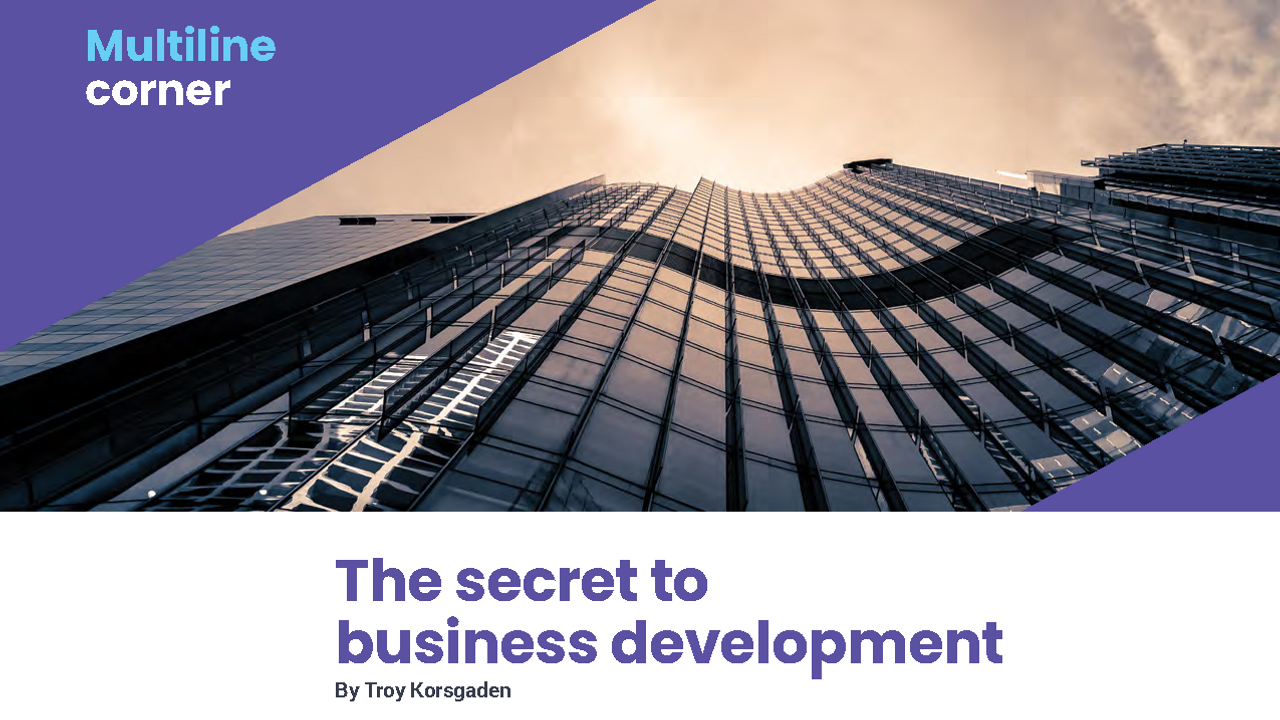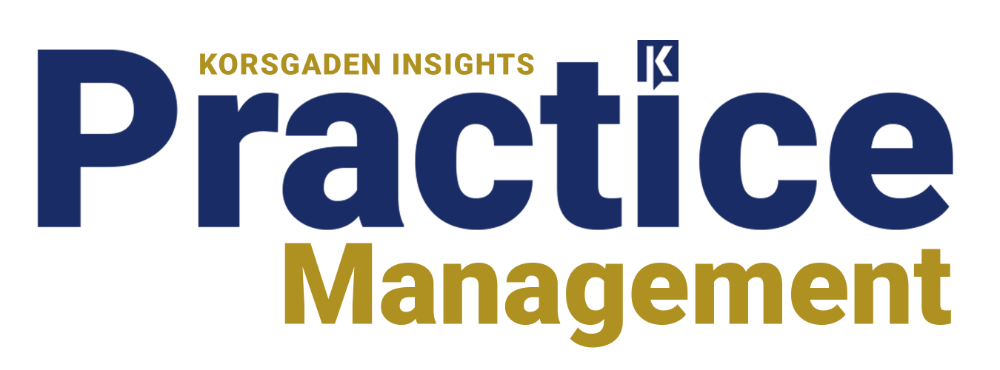The Secret To Business Development

The attached article was just released on Finseca Focus Magazine. Learning and development is a must to meet the demands of the customer. Consumers have a desire and every right to expect their insurance advisors to guide them on their journey to the future.
#Sherpa #InflectionPoint #DiscussionPartner #LearningAndDevelopment #BusinessDevelopment
https://finseca.ygsclicbook.com/pubs/focus/2022/janfebmar-2022/stage/index.html
To book a live presentation email: [email protected]
The Secret to Business Development
I believe the secret to business development can be summed up in one statement: “Seeing more of the right people under the right conditions.”
To grow your business, you must identify your ideal clients (the right people), know when the time is right to meet with them (the right conditions), and execute strategies to see more of them. If you can master these three things, I guarantee your agency will experience major growth.
Every successful financial security professional knows the basic rule for seeing more people: You must generate enough leads to identify enough prospects to engage new clients, and the best way to do that is through referrals and other warm sources.
It is the other two elements of the business growth equation that often get overlooked.
The Right People
The first step in your business development strategy is identifying your ideal clients. I use three methods to do that: looking at my team’s current skills, establishing an ideal client zone, and segmenting my clients into groups based on relationships rather than earning potential.
Identifying your team’s current expertise is the quickest way to begin identifying your ideal clients. Consider examining team members’ outside interests in addition to their product knowledge. For example, a team member with an avid interest in aviation might offer specialization opportunities you hadn’t considered.
Having trouble identifying your team’s expertise may be an indication it’s time to consider moving from a generalist business model to a specialist model. Most agencies train team members to be generalists with knowledge in every product line. But the abundance and complexity of insurance and financial security options available today make it nearly impossible to become an expert in everything. With specialization, you will avoid creating a team whose members are Jacks and Jills of all trades but masters of none. In addition, having a team of specialists puts your agency in a position to provide expert advice when speaking to potential customers.
Despite the ability to communicate with anyone in the world thanks to technology, I still believe nothing is more personal than face-to-face interaction. I set my ideal client zone as a 60-mile radius from where I do business. These are people I can introduce myself to, visit regularly, and invite into my office. I spend my time in this zone marketing to build relationships, not just make sales. You should aim to meet as many people in your local community as possible, so when the people in your community think of insurance and financial security, they think of you.
 The final method I use to identify my ideal client is segmentation. Unlike many financial security professionals who segment their clients based on earning potential, I group my clients into four segments based on relationships. These segments are price shoppers, relationship clients, children of current clients, and discussion partners.
The final method I use to identify my ideal client is segmentation. Unlike many financial security professionals who segment their clients based on earning potential, I group my clients into four segments based on relationships. These segments are price shoppers, relationship clients, children of current clients, and discussion partners.
Price shoppers are the folks who switch companies every three months trying to find a better deal. While you may take on these clients, they should not be your target customer.
The children of your current clients can be an excellent source of new customers, but you must begin developing those relationships early. Children don’t automatically use their parents' financial security professionals anymore. They have more options and aren’t as brand loyal as prior generations.
Relationship clients make up the bulk of most professionals’ business. These are the friends, family members, and acquaintances who already know and trust you. Your goal is to move these clients into the discussion partner segment.
In a discussion-partner relationship, professionals build long-term relationships with clients, getting to know them and providing guidance and support for all of their insurance and financial security needs. The old "tell and sell” way of doing business no longer works, and relationships won’t evolve if clients feel they’re being sold something at every opportunity. A discussion-partner mindset dramatically increases your odds of building and maintaining long-term client relationships.
In an ideal world, all your clients would be in the discussion-partner segment. In the real world, you will most likely have clients in all four segments. The key is to develop a different approach with each of the segments, spending the majority of your time with prospects and clients who are the best fit for your business.
The Right Conditions
Once you know whom you want to meet, you must be sure you are meeting with them under the right conditions; that is, you have established a relationship by taking the time to get to know them and fully understand their needs, and you have processes in place to provide the level of service customers today deserve and expect.
I try to learn everything I can about my clients and prospective clients — I call this getting a 360-degree view. I want to know everything about their professional and personal lives so I can provide the best possible advice and service. I also make it a point to learn something new every time I talk to them.
I’m not trying to sell them anything during these visits; I’m building a relationship and gaining a deeper understanding of their needs. People buy from people they know and trust. When you’ve established that trust and have a full understanding of their needs, you’ve created the right conditions.
It’s also important to have systems and processes in place to provide prospects and clients with exceptional service. Today, being good isn’t good enough. Customers want convenience, expert advice, and exceptional service. Mediocre — or worse, bad — service will drive customers away no matter how much they like you. The experience customers have working with your agency — whether online, on the phone, or in person — matters. In a 2021 study, 73% of customers said customer experience drives their buying decisions, and 86% reported that they would pay more for a better experience. Providing exceptional service is an investment, not a cost.
Final Takeaway
If I can stress one takeaway from this article, it is this: The right conditions are not a result of timing; they come from effort.
So, don’t wait for everything to be perfect. Get started now. Identify steps you can take immediately and keep improving every day.

